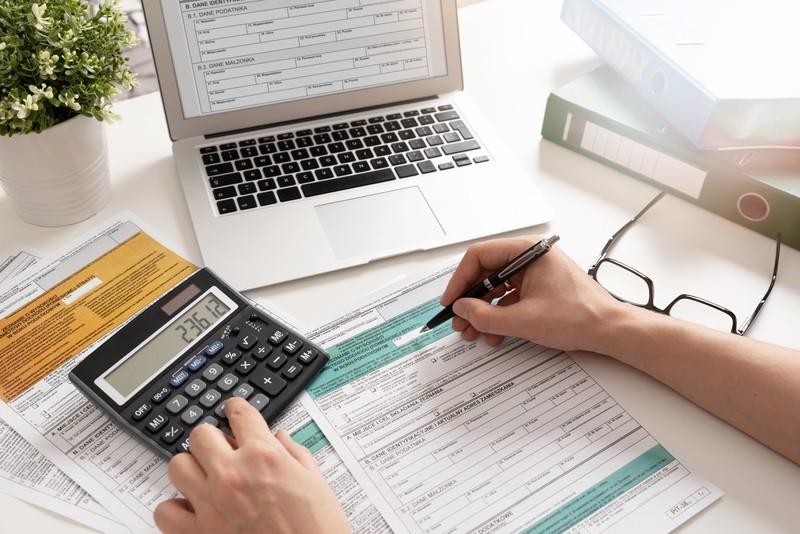
Do you want to sell a house or apartment? When you don't have to pay sales tax
Please note that tax on income from the sale of real estate is not the same as tax on immovable property. In addition, the new owner pays after the transfer. If you sell your house this year, you will avoid property tax next year. The new owner will be responsible for the obligation.
But you have to pay income tax - with some exceptions. According to section 10 of the Income Tax Act, the sale (transfer) is subject to taxation.
Each financial income must also be taken into account in your tax return for the given year, which you submit by April or July of the following year.
When you are obliged to pay tax and when you are exempt (paragraphs 4 and 10 ZDP)
Five cases when the seller is exempt from income tax:
The five-year period is changing to a ten-year period this year
"The sale of real estate was exempt from income tax if at least five years passed from the time you purchased the house or apartment to the time of sale. This year, however, there was a change," reminds adviser Michal Dvořáček.
The change will, however, take effect in most transactions after several years. For what reason?
"The original minimum five-year period still applies to the sale of all real estate that you acquired before 31/12/2020. Only in the case of real estate that you acquired after 1/01/2021, the new period of ten years applies," he adds adviser.
The decisive factor is therefore not the date of sale, but the date when you became the owner.
Example
Mr. Dvořák bought the house in 2019 and will sell it in 2027. Therefore, he will not have to pay income tax. But Mr. Novák, who bought the house in 2021 and will sell it eight years later in 2029, will not avoid the tax. Unlike Mr. Dvořák, he will be subject to a ten-year period without exemption.
We remind you that the tax on income from the sale of real estate in the amount of 15 percent is calculated from the profit, not from the sale price. The tax therefore corresponds to the difference between the sale price and the amount for which you bought the property.
"If you sell a house or apartment for a lower price than you bought it for, you don't have to pay any tax because there is no basis for its calculation," explains real estate expert Jakub Zámiš.

You must live in the house for at least two years
You are also exempt from tax if you have lived in the house or apartment for at least two years before the sale. In the event that the property is jointly owned by the spouses, it is sufficient that one of them lives in it. At the same time, you do not have to have a permanent residence on the site.
"Of course, you have to prove to the tax office that you lived in the property for two years immediately before the sale, for example by correspondence that was sent to you at the address of the property, testimony from neighbors, etc.," reveals the advisor.
You have until the end of the year to report this fact to the lamb.
Satisfying your own housing needs
The third option for exemption from income tax when selling real estate is when you use the proceeds from the sale to purchase a new home of your own, within one year of the sale at the latest.
It can be about the purchase of a new house or apartment, but also about reconstruction, construction, or the purchase of land where construction will begin.
However, you must declare the income from the sale to the tax office and prove that you used it in the specified way.
People who are members of an owners' cooperative and sell a cooperative share are also subject to a time test condition of five years for income tax exemption.
Another possibility of exemption is the use of funds from the sale of the cooperative share for own housing needs - here, moreover, without the need to simultaneously fulfill the condition of previous living in the apartment being sold.
Inheritance in the direct line of inheritance
If you plan to sell a house or apartment that you inherited from a relative in the direct line of inheritance, then the five- or ten-year time test for exemption from income tax is reduced by the period after by which the house or apartment was demonstrably owned by the deceased.
Relatives in the direct line of inheritance are the spouse, children, grandchildren, parents and grandparents. Siblings, uncles, aunts, nephews or nieces do not belong in this group.
“All cases of exemption from income tax on the sale of real estate concern only natural persons. If you are an entrepreneur and the real estate is included in the business assets, or in the business assets of at least one of the entrepreneurial spouses in the case of joint assets, then you are always obliged to pay income tax and no exemption applies to you," clarifies real estate expert from Quantum reality Jan Hájek.
Sale of real estate and VAT
In addition to income tax, there is another tax that is subject to the sale of an apartment, house or land under certain circumstances. This is value added tax (VAT).
Of course, natural persons who are not VAT payers do not pay here. Most often, developers add this tax to the purchase price.
When selling flats and houses, VAT is only payable five years after their completion, or (as of 2016) five years after a major renovation that required a new approval. Later, apartments and houses are already exempt from VAT. However, for some VAT payers it is more advantageous to sell the property with the tax due to the deductions.
When it comes to land, VAT is only payable in two cases:
- consists of a building that is subject to VAT, one functional unit
- building plots (including plots with utilities)
Jakub Procházka
You might also be interested
Listen on Soundcloud







